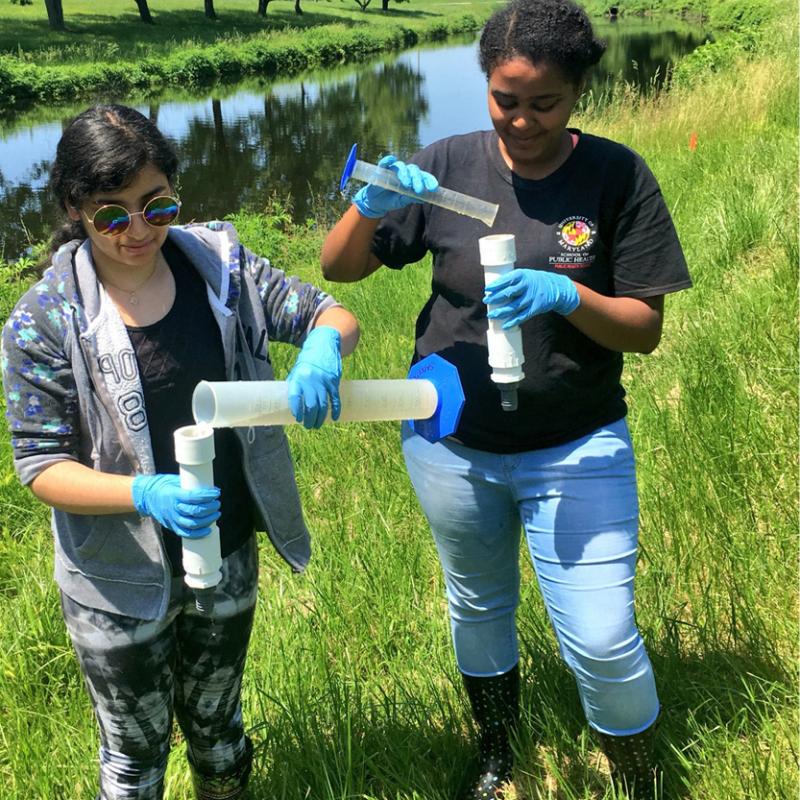
Understand and mitigate environmental hazards to promote human health and well-being
Environmental health explores the impacts of environmental hazards (air, water, soil and food) on human health in the context of socio-cultural, economic, work and family environments.
Perfect for...
- Individuals seeking early graduate training to support future PhD applications
- Individuals with overlapping interests in engineering, medicine, health policy, agriculture, epidemiology, computer modeling, chemistry, microbiology or geography
Career Paths
- State departments of health environmental officer
- Federal agency environmental officer
- Academic researcher
- Industry researcher
- Medical professional
Program Overview
The Master of Science program in Environmental Health Sciences provides advanced graduate-level training in environmental health research. The program offers students the opportunity to work closely with faculty engaged in significant environmental health research initiatives, with a focus on communities experiencing health disparities and environmental injustices. The program includes essential core knowledge in environmental health, exposure assessment, epidemiology and biostatistics and includes completion of practical research training, culminating in a Master's Thesis. Students will learn to collect and analyze environmental health data and develop advanced skills through hands-on research, utilizing state-of-the-art resources and facilities on campus and in partnership with key public health organizations within the DC metro area and around the world.
Click here to view the GEOH Programs Flyer.
See all Global, Environmental, and Occupational Health student resources.
- Demonstrate a comprehensive understanding of the interdisciplinary field of environmental health.
- (for M.S. non-thesis project students) Develop a testable hypothesis that would advance the field of environmental health.
- (for M.S. thesis students) Design and conduct a research study, analyze data and test a hypothesis that advances the science of environmental health.
Students in the Master of Science (MS) program in Environmental Health Sciences complete an essential core of knowledge in environmental health, epidemiology and biostatistics, in addition to a laboratory rotation, an ethics course and a seminar course.
32 credits*, including thesis and rotation with a faculty member.
View all required courses for the MS in Environmental Health Sciences.
*In order to meet the academic standards of GEOH, students must achieve a grade of B- or higher in all required courses (ie: all MIEH and SPHL courses). Failure to meet this requirement will result in the need for a student to retake a course in which they earn a C+ or lower.